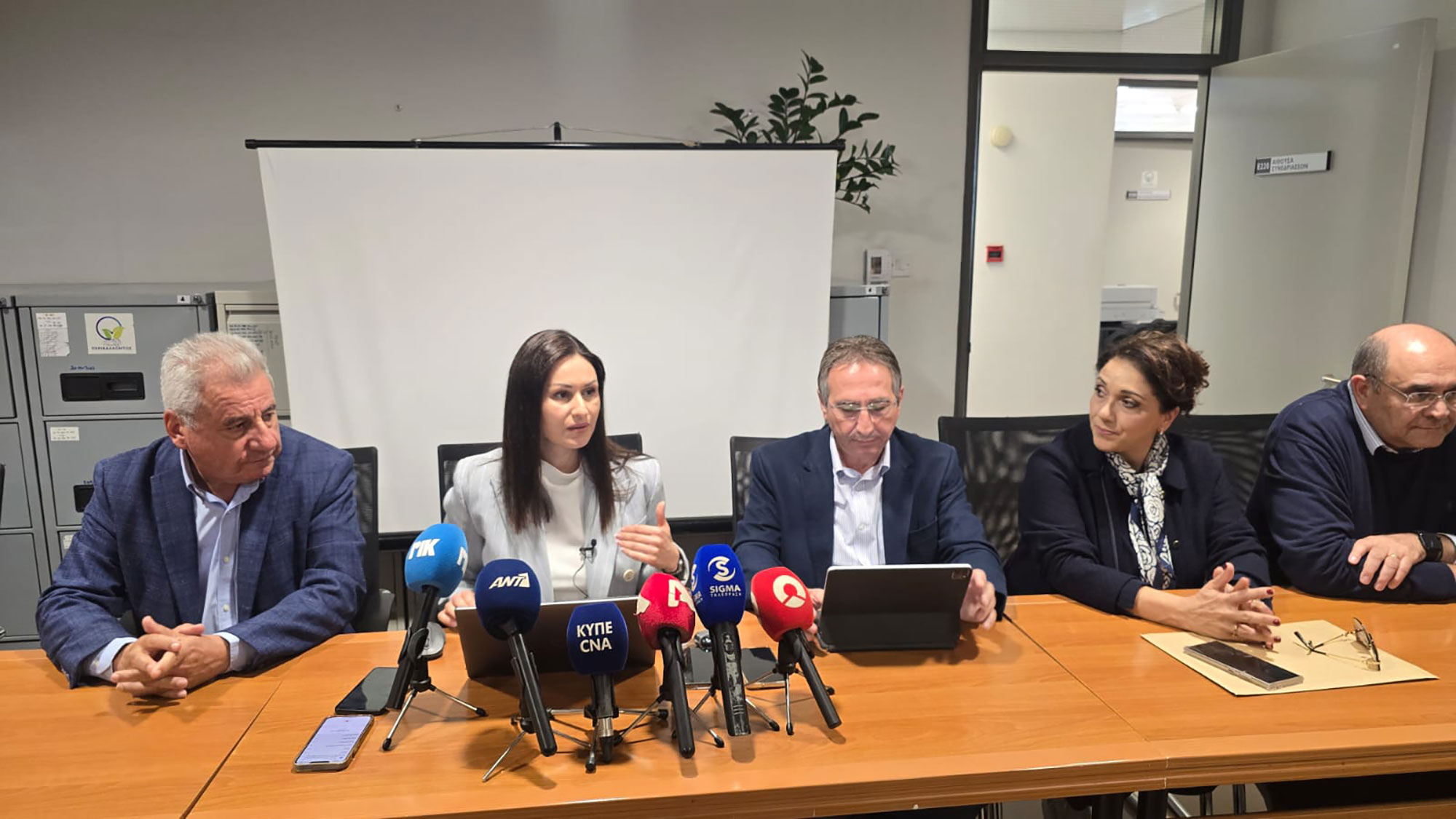The government plans to cover Cyprus’ entire drinking water supply with desalinated water, Agriculture Minister Maria Panayiotou said on Friday.
Addressing the House finance committee with her ministry’s budget up for debate, she said the government wishes to “end the use of desalination plants as a reserve or on a case-by-case basis”, and thus free up water from the island’s reservoirs to be used for irrigation.
“We are giving a future to our agriculture by ending the insecurity,” she said.
To this end, she said that “at least three” more mobile desalination units are to be installed in the near future, in near the Limassol district village of Episkopi, near the Larnaca district village of Vasiliko, and in the Famagusta district.
She said that those three new units would produce 77,000 cubic metres of water per day, before saying that the government also intends to install permanent desalination units in the Famagusta district and in the east of the Limassol district.
“Preliminary studies are starting this year with the aim of operating the units by the end of 2029. These units will also be powered by renewable energy sources. With their operation, 100 per cent of water supply needs will be covered by desalinated water,” she said.
On the matter of the plans’ cost, she said her ministry has allocated €140 million “for the purchase of desalinated water” in its budget, adding that “this decision demonstrates the government’s intention for the continued use of desalination”.
She later said that by January, all four desalination unit projects which had been announced by the government earlier this year will be “fully operational”, including those imported from the United Arab Emirates during the summer, adding “at least 47,000 cubic metres per day” to Cyprus’ drinking water supply.
Additionally, she said the government is also making efforts to “simplify procedures for the installation of small, private desalination plants”, with a grant scheme for hotels and local authorities to install their own small, private plants having been in force since March, allocated a budget of €3m.
Away from the matter of desalination, she said the government is also engaged in projects to bolster the use of reclaimed water – used and highly treated wastewater – for irrigation, adding that reclaimed water “constitutes an important, continuous, unconventional source of irrigation water”.
She added that works are also underway to “upgrade existing irrigation projects” which are being carried out by the water development department, including the “operation and maintenance of central irrigation and reclaimed water transport pipelines”.
Through these projects, she said, the use of reclaimed water has increased by 10 per cent and now corresponds to 37 per cent of the agriculture sector’s needs.
“Everything mentioned is not just announcements and plans, but projects which have already been put on track for implementation. It is not easy to face such a large, complex, and timeless problem in a few months, but the planning is there, we have secured the necessary financial resources, we are implementing them and moving forward consistently,” she said.
However, not everyone has been impressed by the government’s direction of travel with regard to the issue of water.
Coastal engineer Xenia Loizidou had earlier this year slammed the government’s plan to import mobile desalination plants as an “incoherent panic solution”.
She said the units are “of course a solution”, but that “to really solve the water problem, the first thing which needs to be done is to invest in infrastructure and proper management of uses”.
This, she said, must entail there being “no lawns and golf courses” and an “adaptation” of crops to plant those which are less water intensive.
“If with two accidents, Mavrokolympos and Kouklia, the entire state planning collapses, then we are clearly a country which is defenceless and this water policy has failed over time,” she said, referring to the draining of the Mavrokolympos reservoir and a fire at a desalination plant in the village of Kouklia.
Since then, the Mavrokolympos reservoir and the Kouklia desalination plant have both been reopened.






Click here to change your cookie preferences